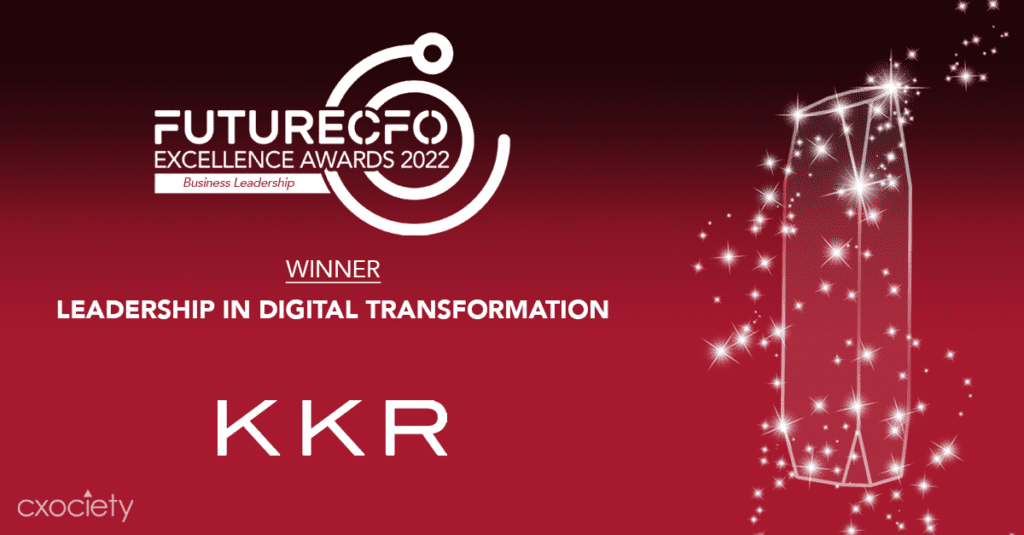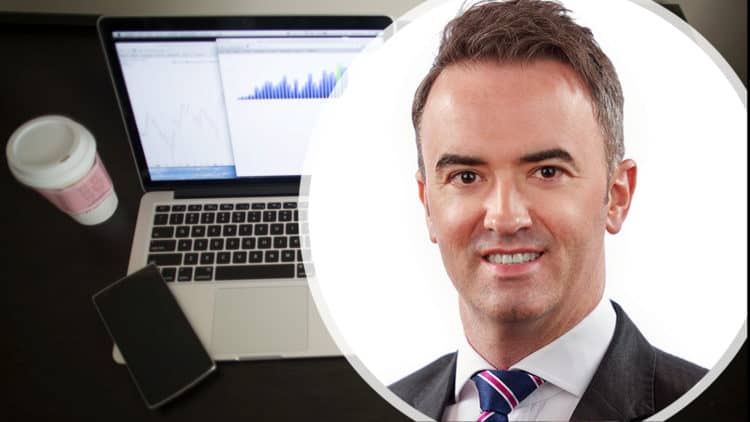Co-produced by Sukhpreet Kaur, community manager, CXOCIETY
According to McKinsey, in the last decade, finance departments have reduced costs by almost 30%. The consultant predicts that the focus in the next decade will be achieving even higher levels of effectiveness.
McKinsey says the most efficient cohort of finance departments (“finance leaders”) achieved similar cost improvement to the level shown by average performers—an impressive feat given that the finance leaders started from a lower cost base.
Finance leaders spent 19% more time on value-added (versus transaction-processing) activities than a typical finance department did.
So, what’s next in the decade? What is the role of the CFO and finance team in helping enable transformation not just for the function but also for the business as a whole?

Adam Hyland, head of Principal Finance at KKR, a US global investment firm, acknowledges that the role of financing is evolving, moving from a retrospective reporting function to a digitally focused high-value proposition powering business success.
“To allow finance professionals to pivot to this new dynamic, it is critical that the commoditised traditional finance function is digitally transformed to become highly automated, utilising best in class integrated systems to create an operating platform focused on risk mitigation, scale, efficiency and control.
“With proper design, execution and ongoing oversight, technology can create huge capacity gains, allowing finance teams the scope to further align to business needs, be a strategic business partner and deliver greater economic benefit, all while maintaining existing headcount.
“As technology develops and becomes more mainstream, what was once the core of a traditional finance role will become automated. Finance professionals of the future will need to be equally as comfortable with systems and workflows as they are with debits and credits today,” he added.
In your view, name three things that contribute to the successful transformation of finance.
Business sponsorship – having the support of the business leadership is key to success. Digitisation needs to be a mindset across the entire business, one that permeates through every team and decision. A finance transformation on its own is unlikely to succeed.
Communication – being effectively able to communicate the ‘how’ and ‘why’ into a cohesive narrative that people can understand and stand behind is important. Success will not be a solo venture; it will take multiple people to invest time and effort. They need to be able to relate to the initiative and see the value of the outcome.
Iteration – it is unlikely the first iteration of a new finance transformation will be perfect. It is more likely that true success will only come after multiple refinements. Be willing to solicit feedback from stakeholders and seek marginal gains. When thinking about the timeline to success, add on a substantial period post-go-live for evaluation and evolution.
In your view, name one thing that can derail a well-meaning transformation?
Finding the appropriate resourcing model for a transformation project can be the difference between success and failure. It is sometimes appropriate to bring in external resources to help with capacity or to fill a skills gap on a project team.
The risk with staffing a project with an all-in-house team is that the day job takes priority, the project gets marginalised, people lose interest and solid initiative wilt on the vine. Yes, there needs to be a balance, but for strategic high value add projects, the business case should be able to withstand external resourcing if needed.
Although adding external resources can create accountability and traction, it is important to ensure the internal sponsorship and overall project management remains strong.
In a transformation journey, which comes first: people, process, or technology?
For me, successful transformation starts with awareness. An awareness of the current operating environment, the business appetite for risk, the impact of the current process on stakeholders and the potential technology may help.
Without awareness of these attributes, it is impossible to envisage what a transformed future state might look like and suggest a business case for change, which has merit. For the most part, awareness comes from use, and one single person cannot have full coverage over every process.
Therefore, creating an environment and culture of reflection and challenge while empowering stakeholders to raise issues can be an excellent window into where resources should be directed.
What is the one biggest lesson learned from transformation in 2020-2022?
It takes a village! Trying to execute in isolation without cross-functional involvement is difficult. The final product may be fit for purpose, but the community necessary for adoption and institutionalisation will be lacking.
Communication and building support for a project at an early stage not only creates a wider sense of ownership but also ensure input from connected stakeholders who may have a different perspective. Connecting the dots across the business ensures an understanding and consideration of other department constraints and views, allowing for better planning and execution in the end.
Digital transformation is said to be a journey. What is next in your journey?
For me, the last two years have seen substantial milestones being reached with numerous new technology applications and systems implemented.
As for what is next, although there is more of the same plan for the next twelve months, the primary objective in the near term is to ensure the implementation work done to date is operating as expected.
To revisit the process and refine set up, always looking at those marginal gains that equal control and effectiveness. Digital transformation is not only a journey but also a mindset and a culture, which requires nurturing at an individual, team and business level, my journey from here will include ensuring this is a foundation of how we position ourselves for continued success.

* Editor’s note: KKR is the recipient of the FutureCFO Excellence Awards 2022 in the category of Leadership in Digital Transformation.




